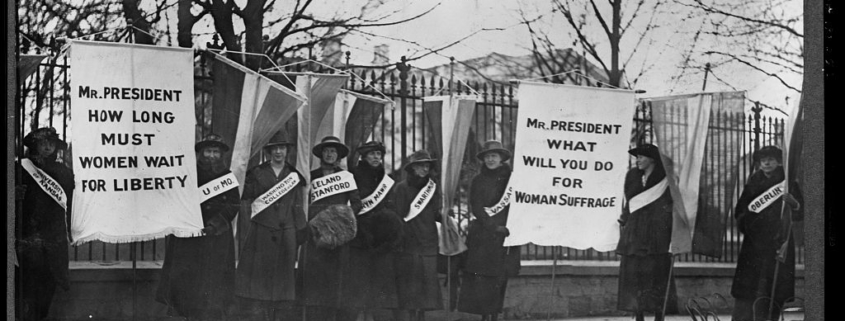19 Days Remaining
August 18th of 2020 marked the 100 year anniversary since the 19th Amendment to the United States Constitution was passed: “The right of citizens of the United States to vote shall not be denied or abridged by the United States or by any state on account of sex.” While this is a pretty phrase, the reality of what came before- and what came after- pen was put to paper by President Woodrow Wilson in 1920, was a lot messier.
The decades prior to this momentous progression in civil society saw women around America- and the world- fighting for suffrage. The movement that led to the ratification of the 19th Amendment actually started in the Nineteenth century. The first women’s rights convention was in Seneca Falls, New York, in 1848, and the conversations that took place here echoed through the next 72 years. However, the conversations were saturated in irony, as they specifically advocated for the right of White women to vote. Many White women fighting against their oppression from White men were perpetuating the same oppression to other women.
As with the Fifteenth Amendment, the right of women to vote operated quite differently in practice as it was written in policy. There was immense pushback in Congress and society at-large, by those that wanted to stifle the voices of women and the progression toward a more equal society.
It is important to note that the names we remember today as being fundamental in the women’s suffrage movement were emboldened by the unwavering dedication of so many women that go unnamed in our history books. Although the passage of the Nineteenth Amendment undoubtedly signaled progress, not all women had cause for celebration. Racial inequities ran (and continue to run) deep, and while the women’s suffrage movement found its roots intimately entwined with the anti-slavery and abolitionist movements, the win for White women did not subsequently mean intersectional equality. Rather, White women in America, whether actively or passively, perpetuated oppression against the same women that had stood alongside them for decades.
When we talk about women’s rights, let it be inclusive. Let the history be honest and multifaceted. Let it be intersectional. Let us uplift the Black women who lobbied before Congress, marched in the streets, picketed in front of political leaders’ homes, and protested in person and on paper. Let us give the overdue space to the stories of the Iroquois women that empowered the White women whose narratives never lack space in history books. Let us acknowledge and pay the long overdue respect to ALL the women who make up the complex history of women’s rights, and recognize that all their stories are inextricable from one another.
As we approach election day, remember that the struggle to vote without obstacles did not end 100 years ago.
Stay tuned for Day 18!





Leave a Reply
Want to join the discussion?Feel free to contribute!